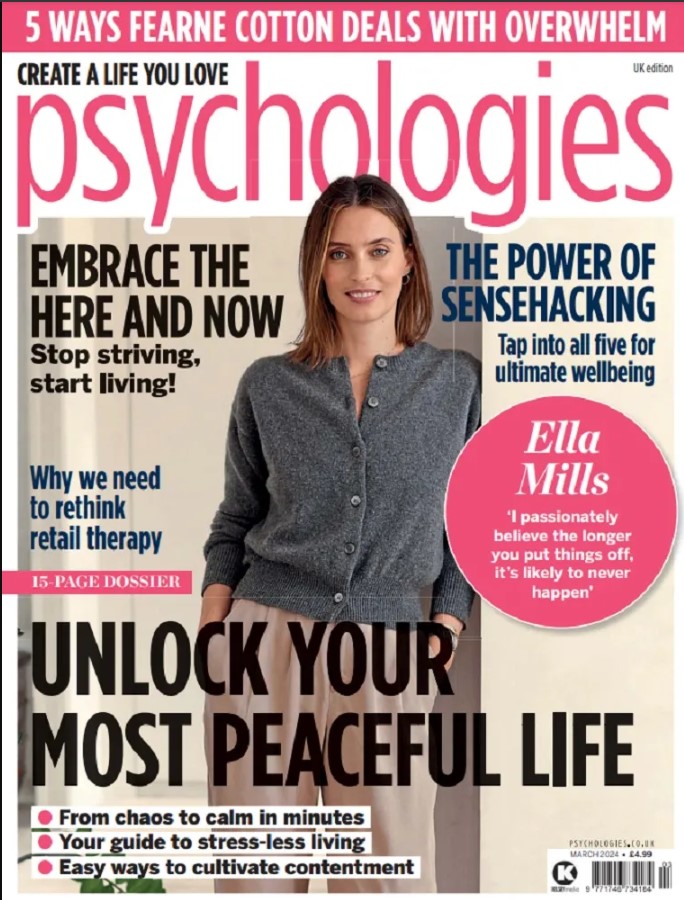Start Making Smart Decisions – 3 Simple Steps
Have you ever been faced with a big decision, perhaps even been offered several opportunities at once and found it hard to know the “right” one(s) to go for?

Maybe you’ve found yourself able to logically work out what to do, but still feel stuck because you can’t seem to tap in to the deeper part of your inner knowing that holds the clear guidance you are looking for?
Earlier in the week this happened to me. It really tested my ability to stay with not knowing for long enough to deeply listen. When I created space to really feel into all the options on the table, I was able to gain answers from within that gave me the gut feeling I needed.
When we sit for a while with the discomfort of not knowing exactly what is coming next, what option to choose or what direction to go in, it creates space for the small quiet voice within us to whisper guidance. In this space our body is more clearly able to communicate with us and we are better able to feel the sensations of excitement and expansion that indicate something being aligned with our highest good, versus contraction or heaviness urging us to hold back or think again.
It is also in this space that we can connect to our inner strength and courage.
Do you create space in your life to sit in stillness?
For many years of my life I didn’t. I used to be so caught up in whatever was going on in my life during my twenties that I pushed through each day like a steamroller, totally ignoring any need to rest and overriding any communication from my body.
This approach led me to burnout when I was 28 years old.
Fast forward ten years and I still need to remind myself to create space in order to get inner insight when I need it.
But, I know how important this is. So, I do it.
Just like I did this week – and every week.
You see, when we are in steam roller mode we are only able to access the part of us that processes information logically and makes intellectual decisions. This ability does hold its own value, but in isolation it rarely results in optimal outcomes.
To make really good decisions we need to turn on and listen to our inner navigation system.
The biggest block to creating space and listening in this way can often be the illusion of urgency caused by constant connectivity. Many of us have been bombarded for so long with multimedia messaging that we need to be weaned off from technology in order to re-set our central nervous systems and create healthier ways of interacting with our phones and other devices.
I spent a couple of years managing a stunning retreat centre in the Somerset countryside (called 42 Acres), where people purposefully came seeking rest and renewal.
Every week when groups of new guests arrived there would be an initial wave of panic as they discovered that the phone connection was incredibly poor and Wifi was non-existent. Their panic stemmed from being so conditioned to being permanently connected that they had forgotten what it was like to reallyrest and not be switched ‘on’ like their phones.
I would relay the following:
“When you wake up in the morning and glance at your phone, turn on the news or the tv your brain starts uploading and processing new information. Whether it is a ‘breaking news’ broadcast, a time-sensitive status update, or the announcement of a sale that ‘ends today!’, the alerts we receive are designed to be attention grabbing and can catch us in a constant state of ‘need to know’. We can get trapped in a pattern of compulsively checking the media and feeling compelled to stay on top of our e-mail or latest news feeds, whether political, health, sports, or general social networks. This behaviour leads to the experience of information overload”
Do you identify with information overwhelm?
Do you feel you have a clogged cognitive processing capacity and limited ability to make decisions?
It is possible to press re-set and reconnect with your inner decision-making genius – here’s how!
Start Making Smart Decisions – 3 Simple Steps
1. Digital Detox– You don’t necessarily need to book a retreat to re-set (although I can highly recommend it), but you do need to detox digitally if you want to change the way multimedia messaging currently consumes your attention.
Although it is difficult to avoid big advertising billboards in the street or radio in the shops, it is possible to make a conscious choice to cut down on the amount of media that you expose yourself to via your phone and other devices.
Consider a cut off time in the evening at least an hour before you go to bed to help you disconnect from your day and unwind ready for a good night’s rest. Rather than taking your phone to bed with you, buy a silent alarm clock for your bedroom and leave your mobile in another room until after breakfast the morning.
2. Consciously Carve Out Thinking Space
Start by disconnecting for at least 20 minutes each day and for extended periods of time at the weekends and holidays.
At times when you are alone and feel compelled to resume old habits of compulsive media checking, grab a pen and paper and write down whatever is on your mind instead. Allow yourself to write anythingand everything. Nobody else needs to see what you write. At first you may write line after line of total dross, perhaps even page after page. That is okay. Keep writing.
The logical part of your brain is likely to want to analyse and criticise whatever you write. That is normal. As you continue to write in this way you will find that analytical thinking gradually begins to subside, allowing the creative part of your brain to engage.
Your creative brain is the connection to an inner power source that transcends the logical mind and shares flashes of inspiration, insight, and wisdom. When we access this place within us we make truly smart decisions.
3. Trust Your Gut
Have you ever made a decision based purely on logic in the past? Paying attention to your head, but ignoring your heart? How did things pan out?
I remember once accepting a job with a manager who felt totally off when she interviewed me, but on paper the role sounded so good and the opportunity seemed like such a sensible one for my career. A few months into the role and I soon discovered why I should have better trusted my gut instinct – she was like working for the boss in ‘A Devil Wears Prada’!
The black and white facts do matter, but what matters the most is how you feel about the decision you are making. If something doesn’t feel ‘right’, no matter how good it might look on paper there is usually always a reason. When you allow enough space for your inner wisdom to communicate and pay attention to it when it does (rather than ignoring it!) you can rest assured that your decisions will always be the smartest ones possible.
Finding it hard on your own to switch off, re-connect with confidence or make decisions?
Read my bestseller ‘Burnout to Brilliance: Strategies for Sustainable Success‘ or book your complimentary consultation with me today. Click here to view my calendar and choose the slot that best suits your schedule. I offer 1-2-1 private and group retreats in the stunning Somerset countryside and by the sea near Bristol.
#BurnouttoBrilliance #DecisionMaking #LifeCoaching #CorporateCoaching #Retreat #Stillness #Intuition #InformationOverwhelm #SmartphoneAddiction
Burnout Coach Jayne Morris
Bespoke burnout recovery coaching programmes & retreats
Jayne Morris is the author of Burnout to Brilliance: Strategies for Sustainable Success. Jayne has over fifteen years’ experience in the mental health field, specialising in Burnout Coaching as an ICF PCC Executive Coach and is accredited in PG Cert Business & Personal Coaching, as well as being a Postgraduate-level Tutor and Coach Supervisor. She is also a former NHS Online Health Sector Life Coach, endorsed by Professor Dame Clare Gerada MBE, Chair Royal Council General Practitioners NHS. Jayne additionally holds an Advanced Diploma in Integrative Art Psychotherapy and BSc Economics. She is also accredited by the International Coaching Federation, the Association for Coaches and the National Council for Integrative Psychotherapy. As a member of the British Neuroscience Association, American Board of Neuro Linguistic Programming, International Transactional Analysis Association, Functional Fluency International and Institute for Arts and Therapy in Education Alumni Association, Jayne is passionate about continued professional development and stays across the latest developments in the fields of neuroscience, executive coaching, neuro linguistic programming, transactional analysis and integrative art psychotherapy. As a sought-after speaker, workshop leader, BBC radio and TV personality, Jayne is regularly invited to talk on a variety of topics relating to burnout prevention and recovery, sleep and stress management. Jayne delivers a postgraduate coach training programme on behalf of Barefoot Coaching Ltd, accredited by the University of Chester and ICF. She is also an ICF Mentor Coach and Coach Supervisor qualified at postgraduate level. She has been featured in many national and international publications on the topics of burnout, stress and wellbeing. Jayne runs Balanceology, a wellbeing business, with her husband Dylan. Balanceology offer in-person and online wellbeing workshops, coaching and consultancy. Jayne has extensive experience managing retreat spaces and running retreats, including projects for Charlotte Church's The Dreaming (Wales), Pythouse Kitchen Garden (Wiltshire), Belmont Estate (Bristol), 42 Acres (Frome) and Lucknam Park Spa (Bath). She creates bespoke individual and group retreats hosted in specially selected venues in the UK and abroad. When not writing, speaking or coaching on topics relating to burnout, Jayne can be found swimming in the sea, practicing martial arts (she is a black belt in both Karate and Tae Kwon Do) or our on long walks with the family dog, Blade. She resides with her husband and two daughters by the coast, near Bristol, where she loves running 3-day restorative retreats and being outdoors.



